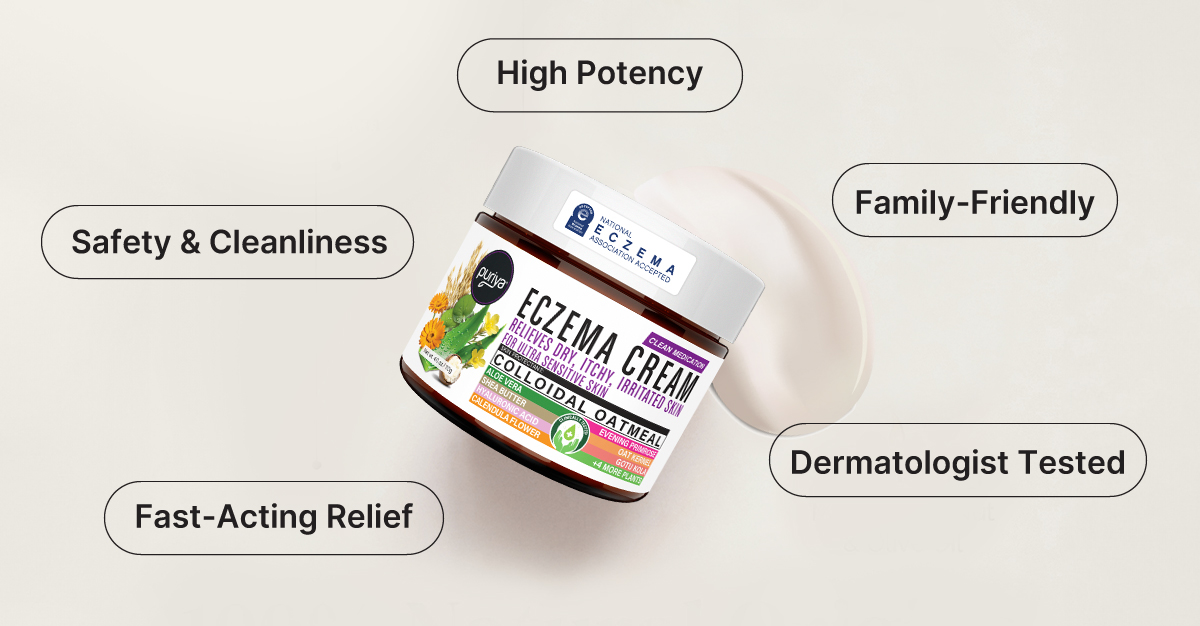

Is Eczema an Immune Disease?
Unpacking the Mystery Behind the Skin Condition
Eczema, also known as atopic dermatitis, has long been a topic of discussion for many and also concern among health enthusiasts, sufferers, and those who lean toward organic product solutions. Understanding whether eczema is an immune disease or maybe something else, can help demystify its causes and management.
Eczema affects millions globally, causing itching, distress and discomfort. But is it an immune disease? This article aims to explore this question, shedding light on the relationship between eczema and your immune system. By the end, you’ll have a clearer understanding of eczema and immune disease along with practical steps to manage it effectively.

What is Eczema?
Eczema is a chronic dermatological condition that manifests for most, as dry, scaly, and irritated skin, frequently accompanied by intense itching and discomfort. It often appears in childhood and early years, but can persist into adulthood. Symptoms can vary drastically in severity and can significantly impact quality of life.
Symptoms of Eczema
Common symptoms of eczema and immune disease include itching, red to brownish-gray patches, and thickened, cracked, or scaly skin. In severe cases, blisters may form, leading to oozing and crusting.

The Role of the Immune System
Our immune system functions as the body’s natural defense against infections and most diseases. However, in people with eczema, this system appears to malfunction, leading to inflammation and other symptoms like itch and rash.
Immune System Dysregulation
Dysregulation, what a word! It really just means out of whack! Studies suggest that eczema involves an overactive immune response. This dysregulation causes the body to react strongly to harmless substances, resulting in inflammation and the characteristic symptoms of eczema.
Genetics and Eczema
Genetics play an important role in the development of people’s eczema and immune disease. If one or both parents have eczema, asthma, or hay fever, the likelihood of their child developing eczema almost always increases. This genetic predisposition often affects how the immune system functions.

Environmental Triggers
External factors such as allergens, irritants, and stress can exacerbate eczema. These triggers prompt the immune system to react, resulting in flare-ups.
The Hygiene Hypothesis
This Hygiene hypothesis suggests that reduced exposure to infectious agents during early childhood can increase susceptibility to allergic diseases, including eczema. This theory supports the idea that the immune system’s development is influenced by environmental factors.
Eczema and Allergies
Eczema is often linked with other allergic conditions such as asthma and hay fever. This triad is known as the atopic march. The immune system’s hypersensitivity plays a central role in these conditions.

Treatment Options
Managing eczema involves a combination of treatments aimed at controlling symptoms and preventing flare-ups. Common treatments include topical corticosteroids, moisturizers, and antihistamines.
Natural Remedies
For those leaning towards organic products, natural remedies such as aloe vera, colloidal oatmeal, and coconut oil can offer relief. Puriya’s Natural Eczema Cream, free from harsh chemicals, is a popular choice because of its safe and gentle formulation.
Importance of Moisturization
Keeping the skin well-moisturized is crucial in managing eczema. Thus, hydrated skin reduces the likelihood of dryness and cracking, which in turn helps prevent flare-ups and infections.
Lifestyle Changes
Taking charge of your health with a balanced diet and stress management can make a real difference in managing eczema. It is also crucial to avoid known triggers and maintain good skincare routines.

Conclusion
Understanding eczema as an immune-related condition helps in its management. While it involves the immune system, genetics, and environmental factors, a comprehensive approach can offer significant relief. For personalized guidance, consider consulting with healthcare professionals or exploring high-quality natural products like Puriya’s Natural Eczema Cream.
Next Steps
Stay informed and proactive about your skin’s health. Sign up for our newsletter to receive expert tips and exclusive deals on natural skincare products. Join the Puriya community and start your journey towards managing eczema effectively.
- Category:
- Eczema
